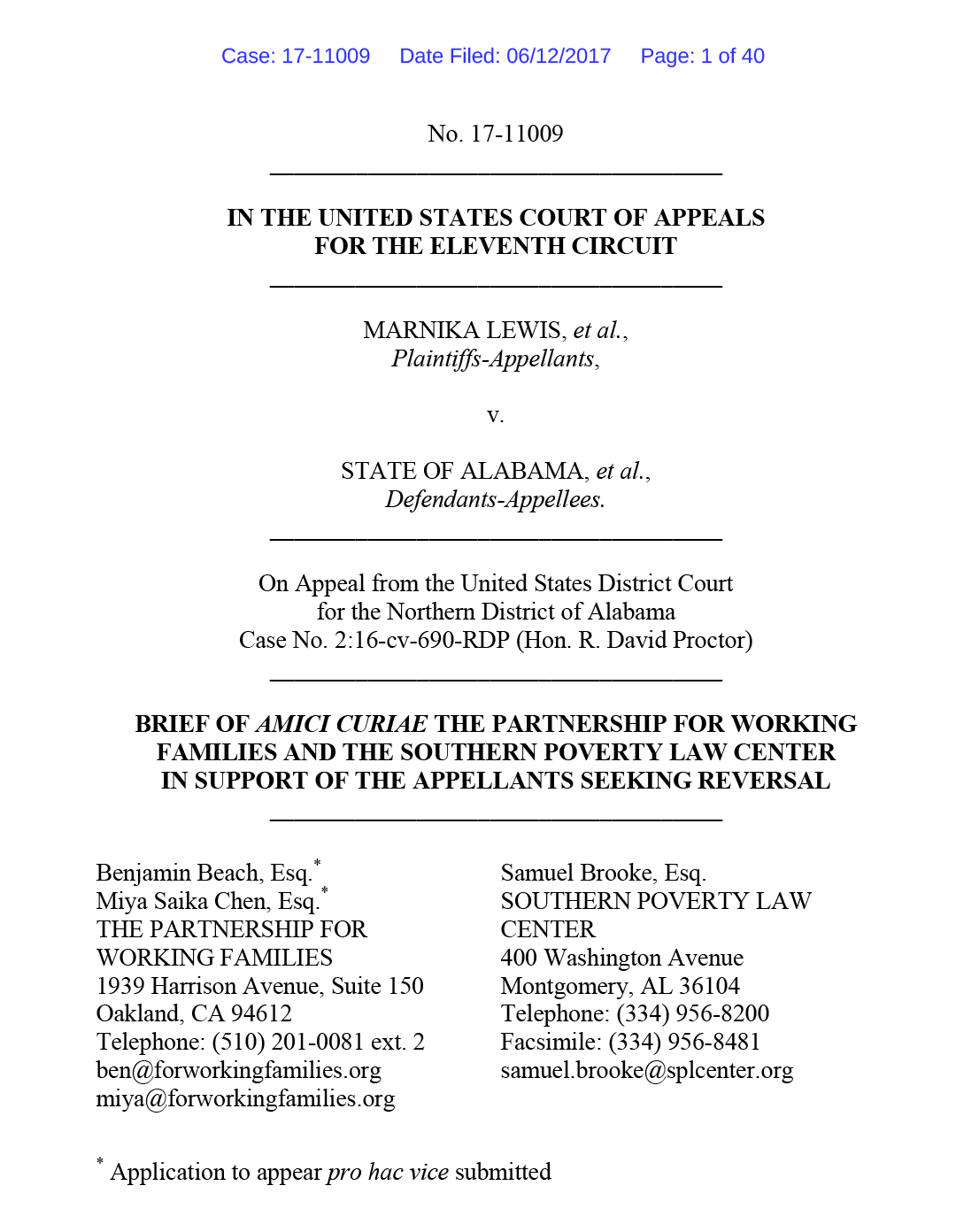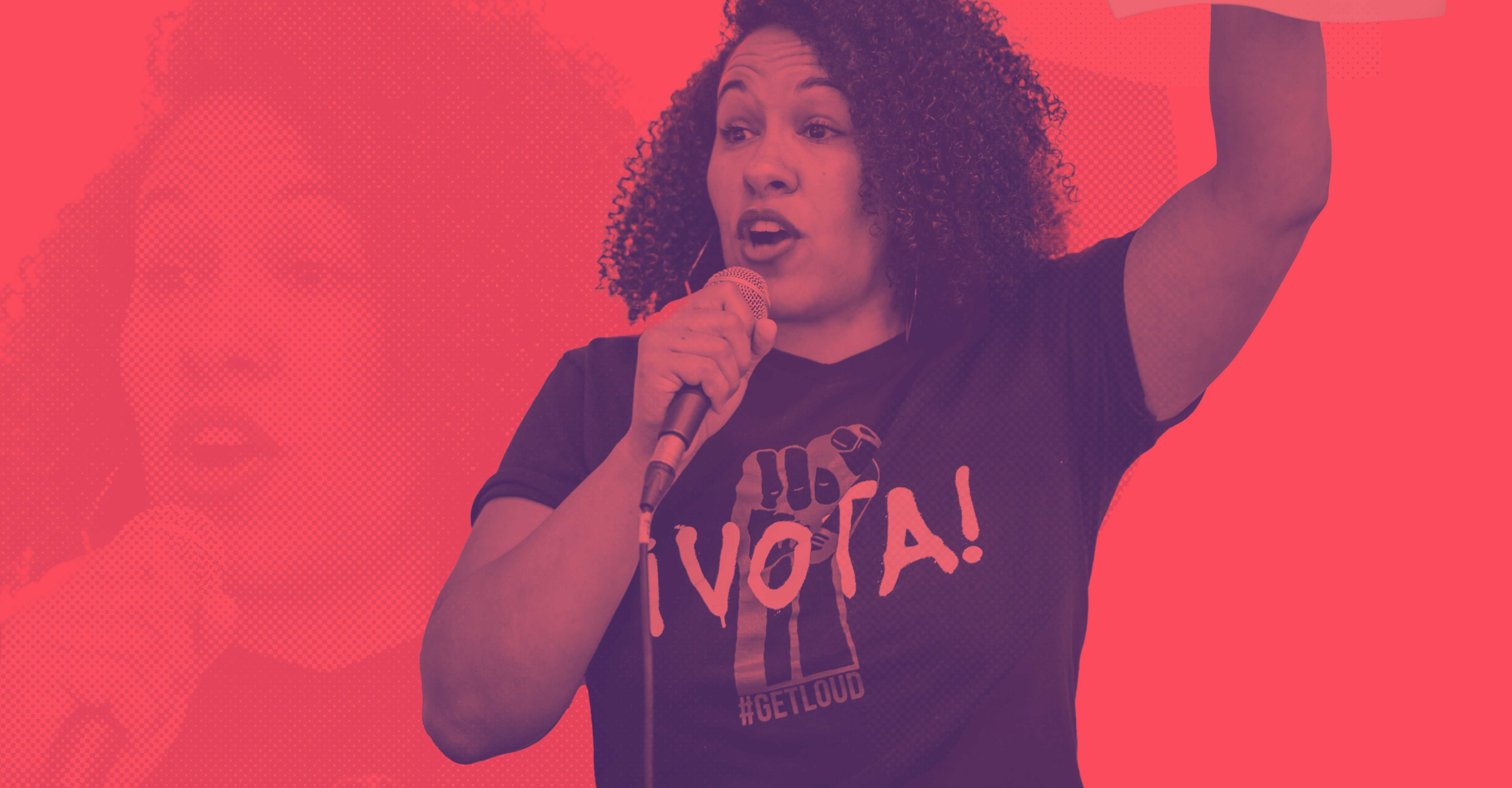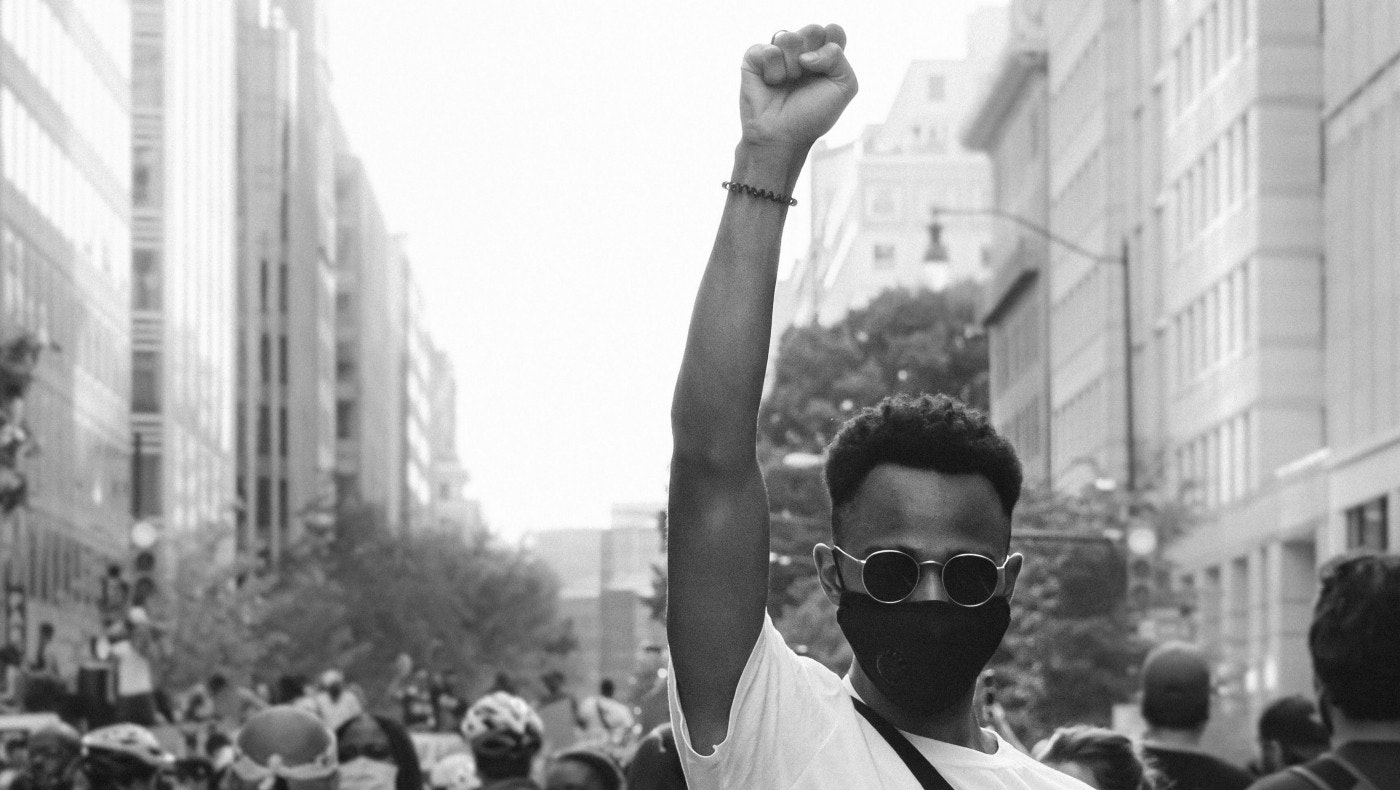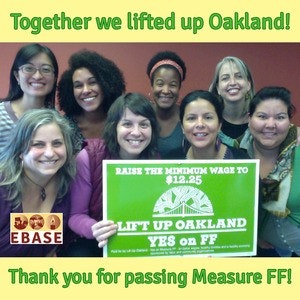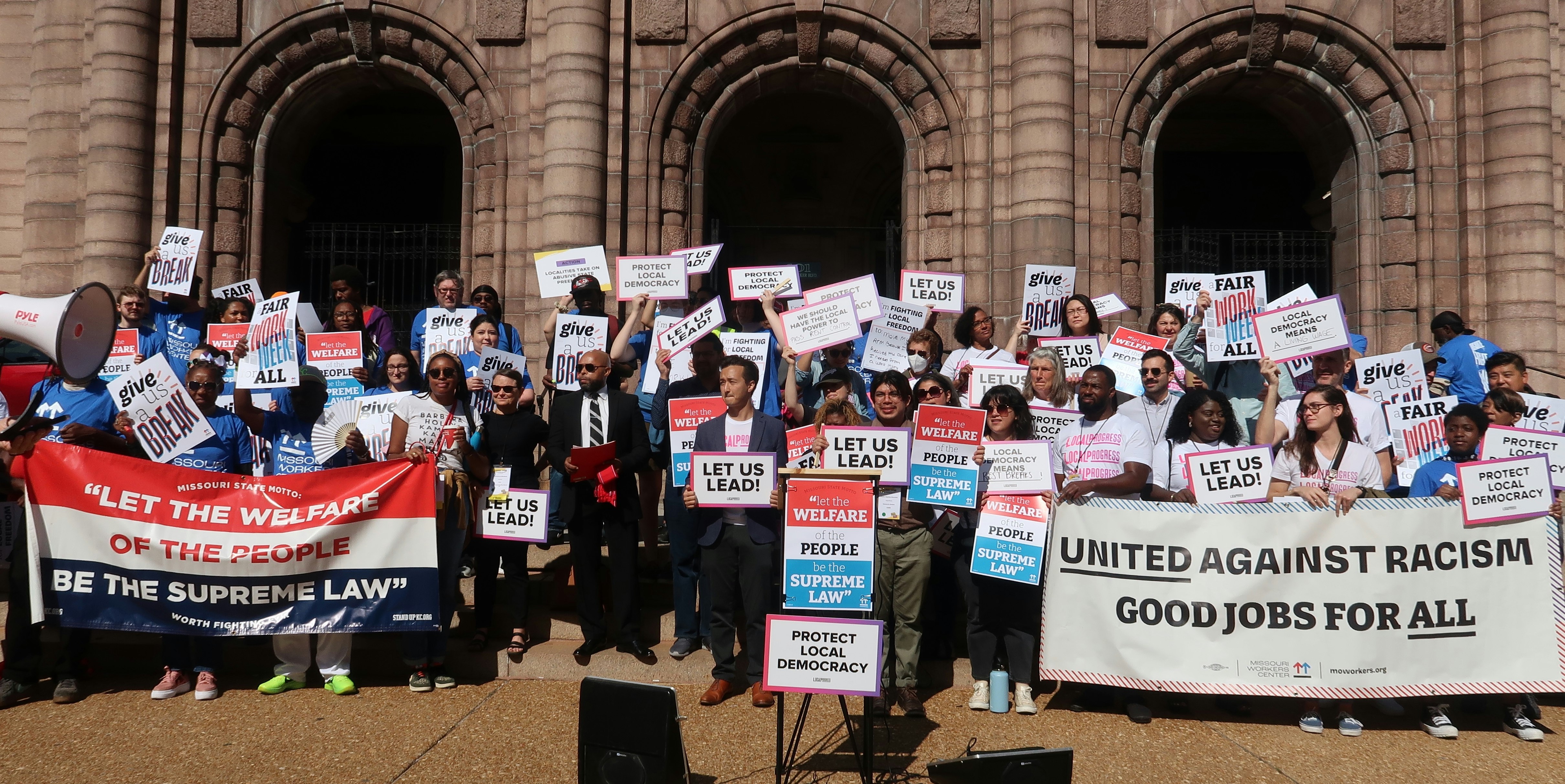NATIONAL – Yesterday, Partnership for Working Families and the Southern Poverty Law Center joined a formidable collection of civil rights groups, local elected officials and academics in filing an amicus brief urging the review of a lawsuit charging the state of Alabama violated federal voting rights and equal protection laws last year when it blocked a minimum wage increase to $10.10 an hour for 40,000 workers in Birmingham.
The appeal asserted that the state’s interference with the city’s minimum wage violates the constitutional rights of majority-black municipalities, by giving majority-white elected legislatures control over their employment policies. In support of the appeal, Partnership for Working Families and the Southern Poverty Law Center filed an amicus brief outlining the historical and ongoing role that race played in Alabama’s decision to block the minimum wage ordinance.
“The data makes it clear that blocking the city’s minimum wage upholds the racial wage gap in Alabama that can be traced back to Jim Crow,” said Miya Saika Chen, Staff Attorney with Partnership for Working Families. “Black workers earn far less than white workers in Birmingham and the lowest wages among all low-wage workers. By blocking this wage increase, Alabama is blocking the Black community’s ability to overcome historical and institutionalized racism.”
The brief asserts that state interference on the wage increase preserves a stark and longstanding poverty among African Americans. In many counties in Alabama, the rate of African American poverty exceeds that of the general population by more than 60%. In these same jurisdictions, African Americans earn up to 27% less than their white counterparts in the lowest earning sectors.
While the city of Birmingham is 72% African American, Alabama’s state legislature is majority-white and is elected by a majority-white electorate. The demographics make the case similar to many across the country, in which cities of color run into state interference from predominantly white legislatures when trying to enact policies that address the economic obstacles faced by communities of color.
"Alabama’s majority-white legislature knew what it was doing when it passed a law last year that would reverse a majority-black municipality’s decision to increase its minimum wage,” said Sam Brooke, Deputy Legal Director of the Southern Poverty Law Center’s Economic Justice Project. “They aim to maintain the status quo by continuing to ensure that Black workers earn the lowest wages in Alabama. The disparate impact on communities of color cannot be denied.”
